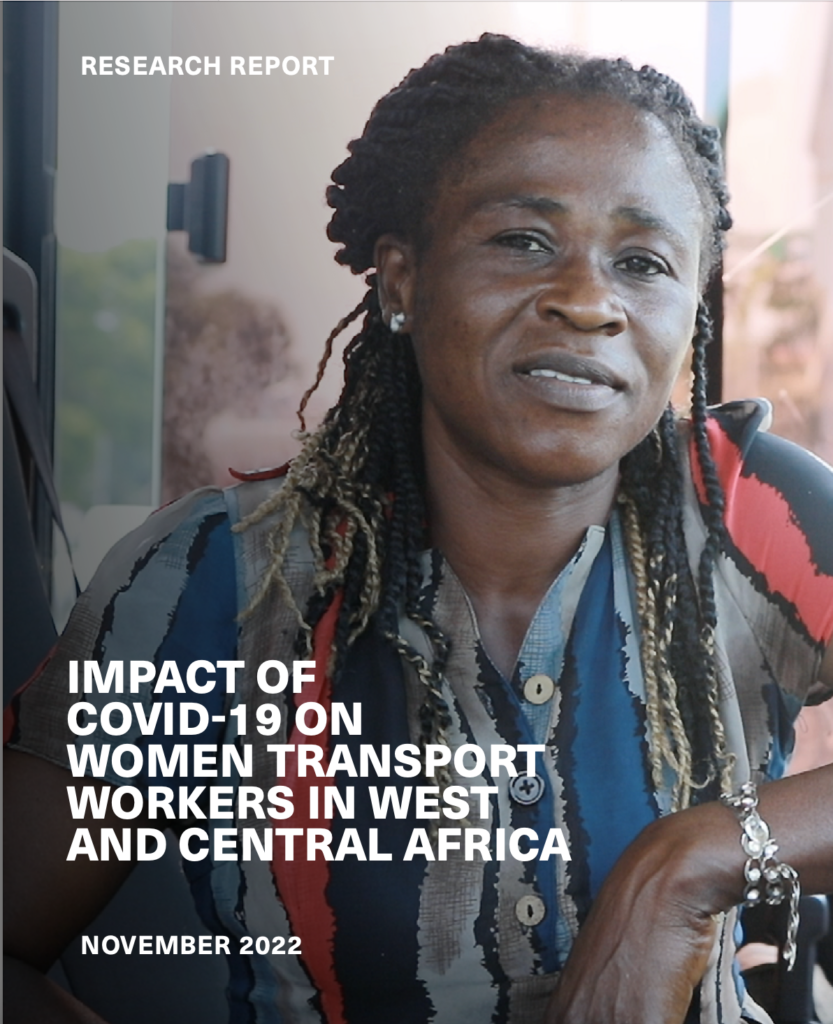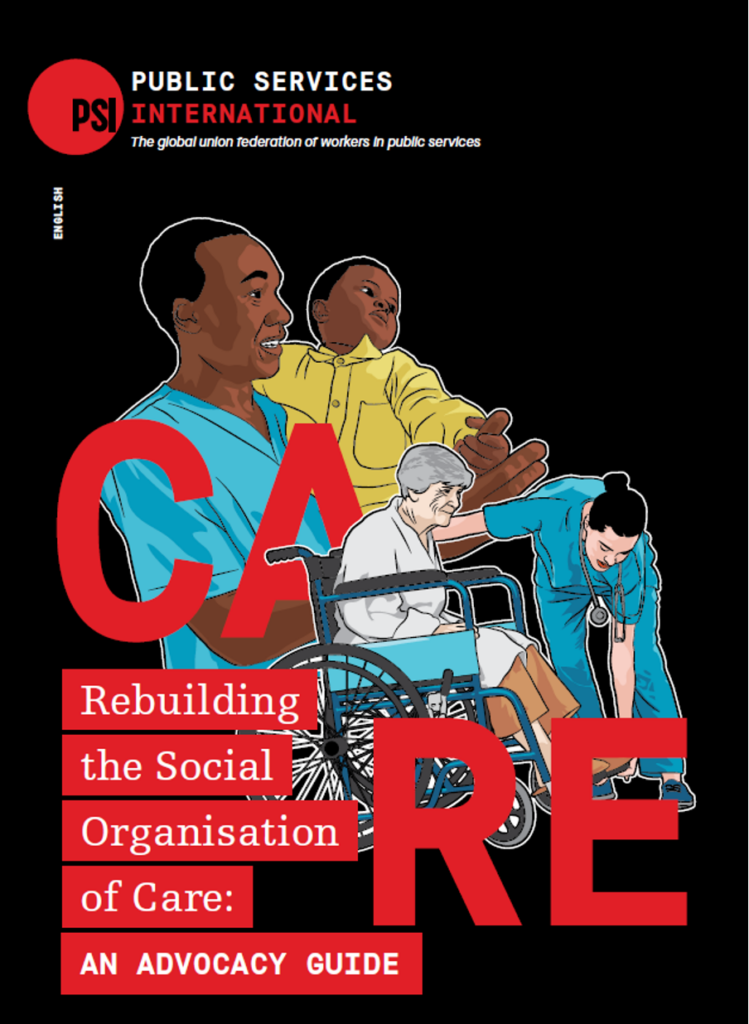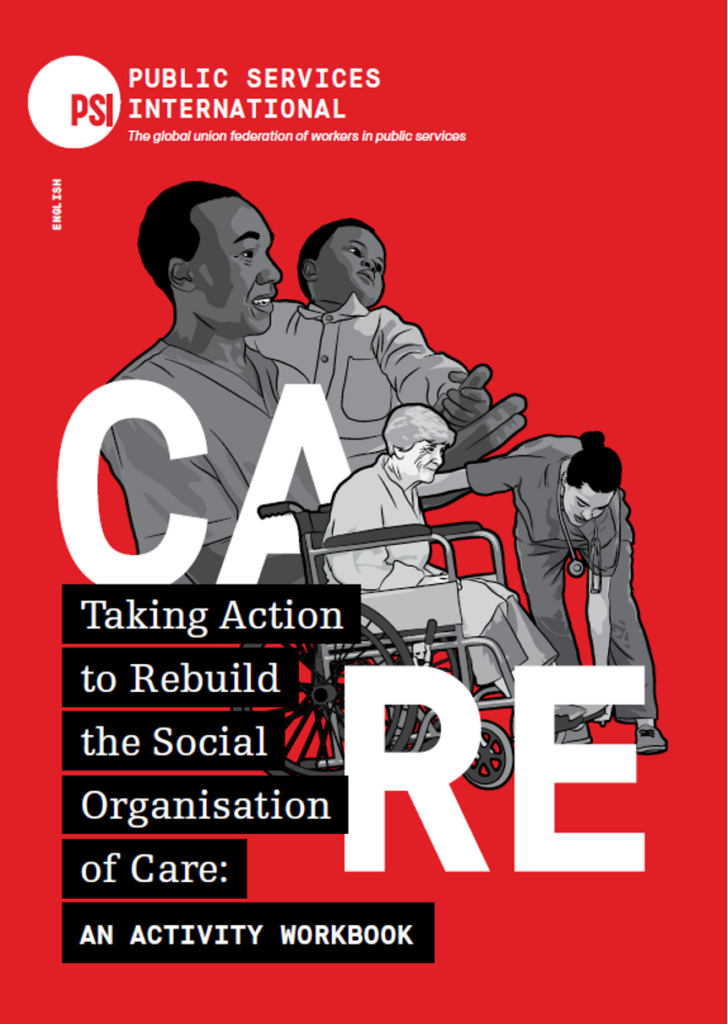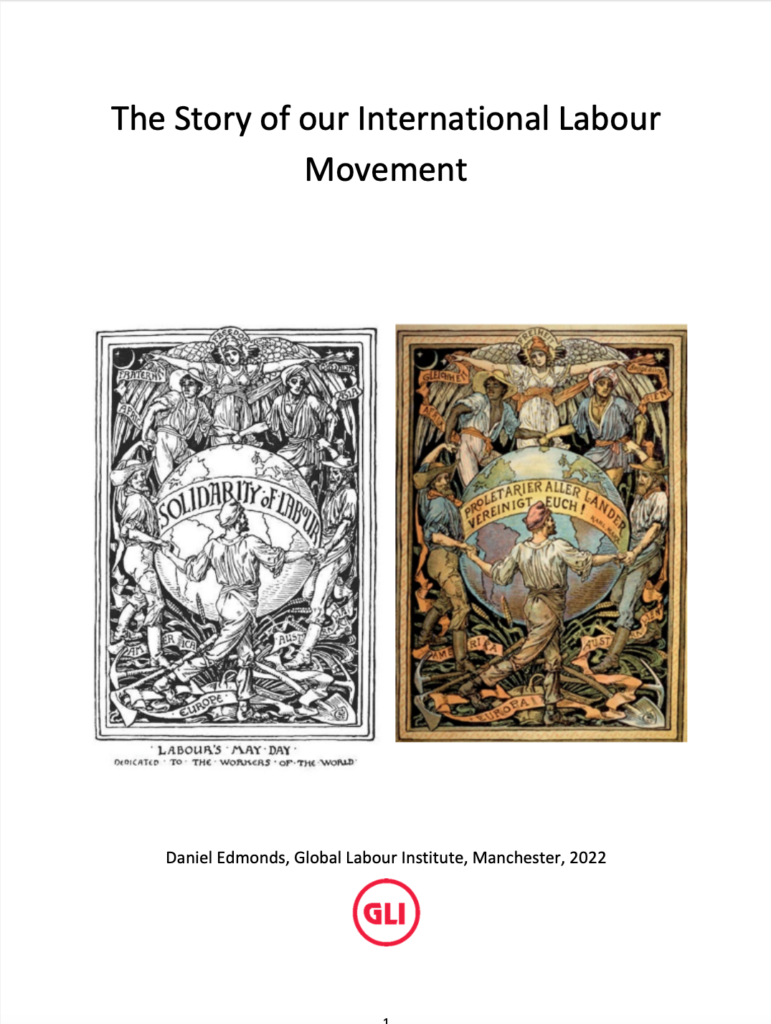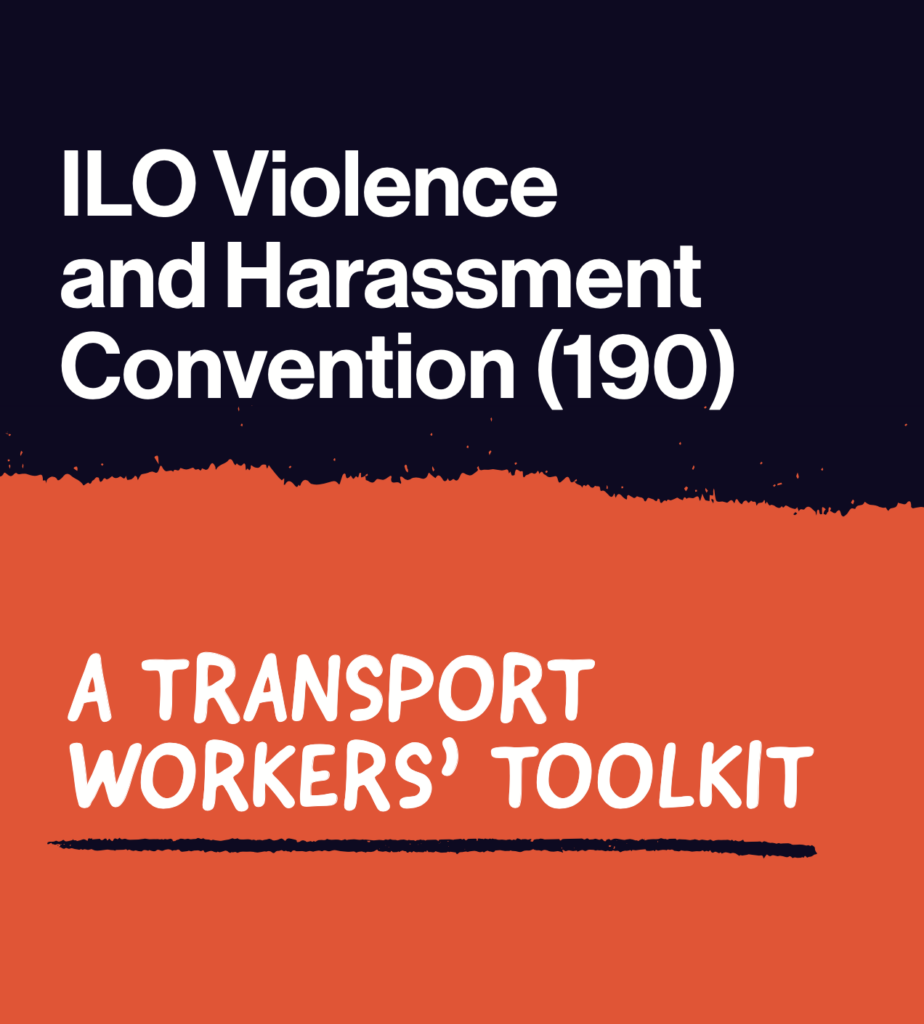Report by Lala Peñaranda, TUED Latin America organizer
This bulletin includes three sections: (1) a report back from our discussions with Chilean trade unions, (2) a brief summary of Our Future is Public conference, and (3) an invitation to the upcoming December 21st TUED Global Forum.
In early December, TUED participated in the Our Future is Public conference in Santiago Chile, organized by Public Services International (PSI), the Transnational Institute (TNI), and the Tax Justice Network, among others. Following the conference, TUED co-organized a strategy session with affiliates of the country’s main trade union body, CUT Chile.
Meanwhile, momentum is building for the next TUED Global Forum on Wednesday, December 21st, which will focus on Global South experiences and strategies for building a public pathway. The Global Forum will feature union voices from the launch of TUED South which took place last October in Nairobi (See below). Register for the Global Forum here and share the invitation with your union members and allies.
CUT Chile and TUED Unions Discuss Challenges and Possibilities
On December 3rd, CUT Chile and TUEDco-organized a strategy session at the historic headquarters of the national center. TUED also engaged in discussions with several CUT affiliates and allies, including energy unions Fentrapech (oil), Constramet (mining), FENATRAMA(public sector), and Santiago Metro workers, among others. We also heard from the Movimiento Litio para Chile, a national coalition of trade unions, academics, and social movements building towards a National Lithium Company and regional coordination of public lithium planning with the governments of Bolivia, Mexico, and Argentina.
The CUT Chile strategy session (agenda here) was opened by CUT Chile president David Acuña and followed by two thematic sessions. The first focused on regional perspectives from Uruguay, Mexico, Trinidad and Tobago, Chile, and Brazil on the struggle to reclaim public energy. The Chilean perspective was presented by trade union leader Williams Montes of the National Federation of Oil and Related Unions of Chile (FENATRAPECH). The second session focused on building regional support for a public pathway approach to the energy transition, The Chilean perspective was presented by the CUT Chile Environmental Secretariat, Alejandro Ochoa Gaboardi.
In addition to CUT Chile affiliates, trade union participation included CUT-Brazil, CGT-France, Oilfield Workers Trade Union of Trinidad and Tobago, the Unión Nacional de Técnicos y Profesionistas Petroleros (Untypp), Mexico, as well as the International Transport Workers Federation (ITF) and Public Services International (PSI). PSI General Secretary Rosa Pavanelli offered PSI’s support for the effort to develop a public pathway approach in Chile, and would seek to engage PSI affiliates in the effort.
The Privatization Laboratory
The country’s economic and social fabric has been seriously damaged as a result of the full-on privatization of public services in Chile that began following the Pinochet coup and was forced through by dictatorship.
In terms of energy, from 1970-1973 the Unidad Popular (Popular Unity/ UP) government of Salvador Allende nationalized more than 500 companies in Chile, most significantly copper, the main source of wealth. The military regime returned most of the companies to the private sector and then privatized an additional 50 of the 67 state-owned companies that existed before the UP. The power sector was fully privatized, one of the few countries in the Global South to cede complete control of its power sector to private interests.
While this makes the challenge of reclaiming the power sector to public ownership formidable, unions in Chile expressed an interest in working alongside unions across the region to present an alternative approach to the energy transition. Furthermore, CUT Chile announced they are prioritizing the rebooting of their energy committee in order to facilitate coordination across all energy sector affiliates in the work towards a just transition. TUED looks forward to working with our Chilean comrades and supporting this effort.
During the past decade, various governments have sought to develop solar power in Chile, with for-profit multinationals from Spain, China and elsewhere carving out considerable space. The largest solar companies include Acciona (Spain), JinkoSolar (China), Trina Solar (China), Enel Green Power (Italy), and First Solar (US).
Speaking on its operations within the country, Enel recently described Chile as its longstanding “testing ground for the Enel Group’s innovations,” adding that Enel has been “unrivaled in its ability to seize the opportunity offered by the Chilean government when it sought companies to invest in renewable energies.” Enel, which is involved in Chile’s solar, wind, geothermal and hydroelectric sector, boasts that in “the last three years we have signed more than 300 Power Purchase Agreements (PPAs) for the sale of more than 150 TWh of electricity, 75% of which is certified renewable energy.”
Plans are also being developed for several hydrogen projects, but the sector is facing opposition as well as rising prices and technical challenges due to the neglect of the transmission and distribution infrastructure.
While presented as an example of how to drive an energy transition,modern renewables (wind and solar) contribute around 10% of the country’s power. It’s questionable whether or not the country’s “net zero by 2050” target will be achieved absent a major change in policy.
The Difficult Road Back
A recurring theme throughout our discussions with Chilean trade union leaders was the significance of regional coordination, namely how unions in Chile and across Latin America can work together as a block to develop a public pathway alternative to the neoliberal approach to energy transition.
Comrades from Chile presented a number of key challenges facing the trade union movement. The current political situation is less favorable than it was just a year ago. On September 4, 2022, Chileans cast their ballots in a plebiscite that decided the fate of a new draft constitution, with 62% of the votes favoring “rechazo” or rejection. Although a new constitution will be drafted, the “rechazo” was a serious setback for the government and the trade unions. Just three years ago (October 2019) the country witnessed a historic mass uprising, and a year later Chileans overwhelmingly voted in favor of replacing the 1980 Constitution from the Pinochet era. In December 2021, Gabriel Boric was elected as president with 55.8 % of the vote.
Taking a medium term view, the discussions focused on how unions in Chile and across the Latin American subcontinent can work together to develop a public pathway alternative to the neoliberal approach to energy transition.
“We want to strengthen our international connections in the fight to reclaim energy. Our task is difficult, but together we can win,” said William Montes of the National Federation of Oil and Related Unions of Chile (FENATRAPECH).
Social Movements Declare: Our Future is Public!
Our Future is Public (#OFiP22) Conference, held between November 29- December 2 in Santiago, Chile, gathered social movements and organizations to develop strategies and narratives aimed at strengthening public services while tackling climate change and the materialization of economic, social and cultural rights.
The first two days were dedicated to sectoral meetings on energy, health, education, agriculture, economic justice and social protection, food systems, housing, transportation, waste and water. The final two days consisted of collective discussion on cross-cutting themes including the climate emergency, gender equality, economic and tax justice, and democratic ownership. The Santiago Declaration
The energy sector two-day meetings, which TUED co-organized, included presentations by TUED union leaders and had the following goals:
- Build bigger and stronger alliances to develop effective demands around public ownership underpinned by energy democracy and community participation.
- Bring public energy, energy democracy, ecofeminism, decolonisation, environmental and Indigenous justice groups together to develop a shared analysis and way forward.
- Develop a common narrative and energy programme, meaning a number of programmatic demands that unpacks public ownership as the pre-condition and democratic mechanisms as tools to turn vision around Indigenous Peoples justice, ecofeminism, and decolonisation into policy proposals.
- Identify strategic opportunities for collective action.
The conference’s public document, the Santiago Declaration, is being finalized and will be published in the coming weeks, viewable on the PSI website.
Upcoming Global Forum: Join the Discussion!
TUED will host a Global Forum on Wednesday, December 21 @ 8am ET/New York (find your local times here) during which we will hear about the launch of “TUED South” in Nairobi in mid-October. Interpretation will be available in Spanish, French, Portuguese, and English.
The Global Forum will dive into the TUEDSouth framing document, which offers a preliminary framework to address issues of the energy transition, energy poverty, and expansion of fossil fuels in the Global South.
We also hope to hear reports from comrades who attended COP27 in Sharm El-Sheikh, and the 5th ITUC World Congress in Melbourne. Register for the Global Forum here and please share the invitation with your union members and allies.
In Solidarity,
The TUED Team
Trade Unions for Energy Democracy (TUED) is a global, multi-sector trade union initiative to advance democratic direction and control of energy in a way that promotes solutions to the climate crisis, energy poverty, the degradation of both land and people, and responds to the attacks on workers’ rights and protections. TUED is is part of the Global Labour Institute Network.

